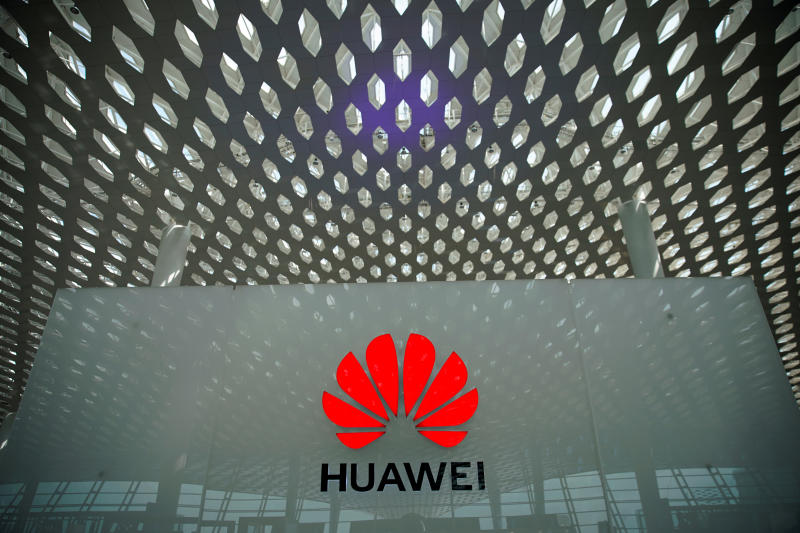Trump-Xi meeting: Huawei a stumbling block to trade truce, say US analysts
Sign up now: Get ST's newsletters delivered to your inbox

Punitive measures could include changes in management and the ability of US officials to inspect Huawei equipment, say experts.
PHOTO: REUTERS
WASHINGTON - While financial markets have cheered the news that President Donald Trump and President Xi Jinping will meet at the G-20 summit next week, analysts are less optimistic that the summit will lead to a truce in the trade war between the United States and China.
Too many gaps remain between both sides, with the fate of Chinese tech giant Huawei - which the US last month blacklisted from buying American technology - posing a particular headache, they said.
"Huawei is the most critical watchpoint," Eurasia Group analysts Michael Hirson, Paul Triolo and Todd Mariano said in a research note.
"Further trade negotiations are likely impossible unless China sees some potential lifeline for Huawei. It is certainly possible that Trump will offer this, but it is complicated politically for both sides."
Beijing and Huawei will have to decide whether to agree to "some form of public punishment, which the Commerce Department will demand as its opening bid in reaching a settlement with Huawei", they said.
Punitive measures could include changes in management and the ability of US officials to inspect Huawei equipment, they said.
"The Huawei action has set in motion dynamics that can't be unwound. China is more convinced now that the ultimate US goal is containment rather than fairness in trade, and has threatened retaliatory restrictions of exports of rare earths," they said.
If both sides show that they can be flexible on key issues, then the leaders will most likely agree to an extension of trade talks - possibly for another 60 days - while also working towards saving Huawei, they said.
Talks, however, could still break down yet again after the summit.
Mr Trump himself signalled that he would be OK with walking away from the G-20 summit without a deal, telling his supporters at a rally in Orlando, Florida, on Tuesday: "We'll see what happens. But either we'll have a good and fair deal or we'll not have a deal at all."
The US was in a strong position to take on China and would no longer tolerate being taken advantage of, he suggested.
"We rebuilt China... They took us for suckers. That includes Obama and Biden," he said, referring to immediate past president Barack Obama and vice-president Joe Biden.
"We've taken historic action to confront China's trading abuses. It should have been done a long time ago... but the days of stealing American ideas and wealth, those days are over."
In Washington, industry groups, business owners and experts continued a second day of public testimony on how they would be affected by proposed tariffs on another US$300 billion of Chinese imports, which Mr Trump threatened to impose in addition to the ongoing tariffs of US$250 billion worth of Chinese goods.
US-China Business Council senior vice-president Erin Ennis said that tariffs were not the right tool to get China back to the negotiating table.
Instead, she said, they were causing China to strengthen its commitment to some of its own policies, such as industrial planning and subsidies. "Frankly, it has also caused the US to implement an industrial policy of our own, trying to get American manufacturers to move out of one location to another one."
Attorney Zhu Haicheng of Zhejiang Chession Law, a law firm specialising in intellectual property protection and international trade disputes resolution, said Mr Trump's tweet in March last year that trade wars were easy to win was "irrational".
"There is a Chinese saying that one general's victory is built on tens of thousands of soldiers' skeletons," said Mr Zhu. "Even street fights are not easy to win. Winners either go to jail or hospital."


